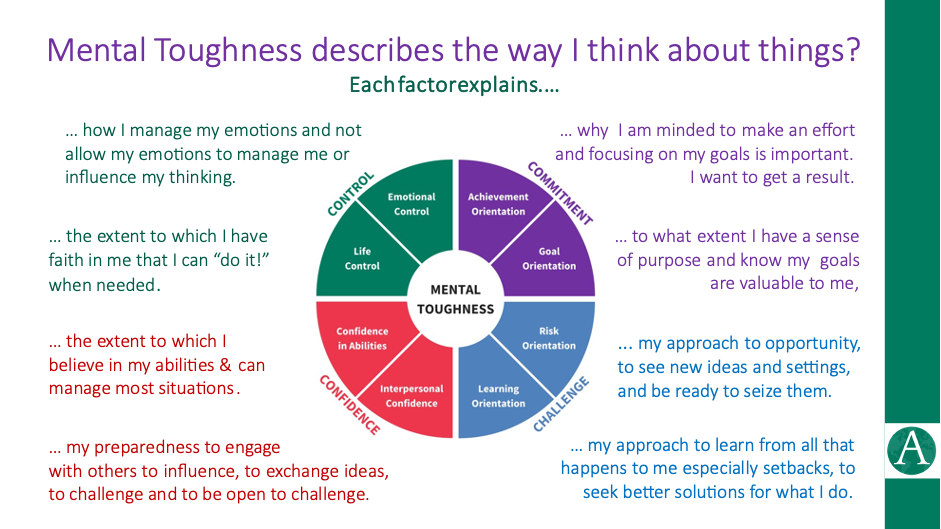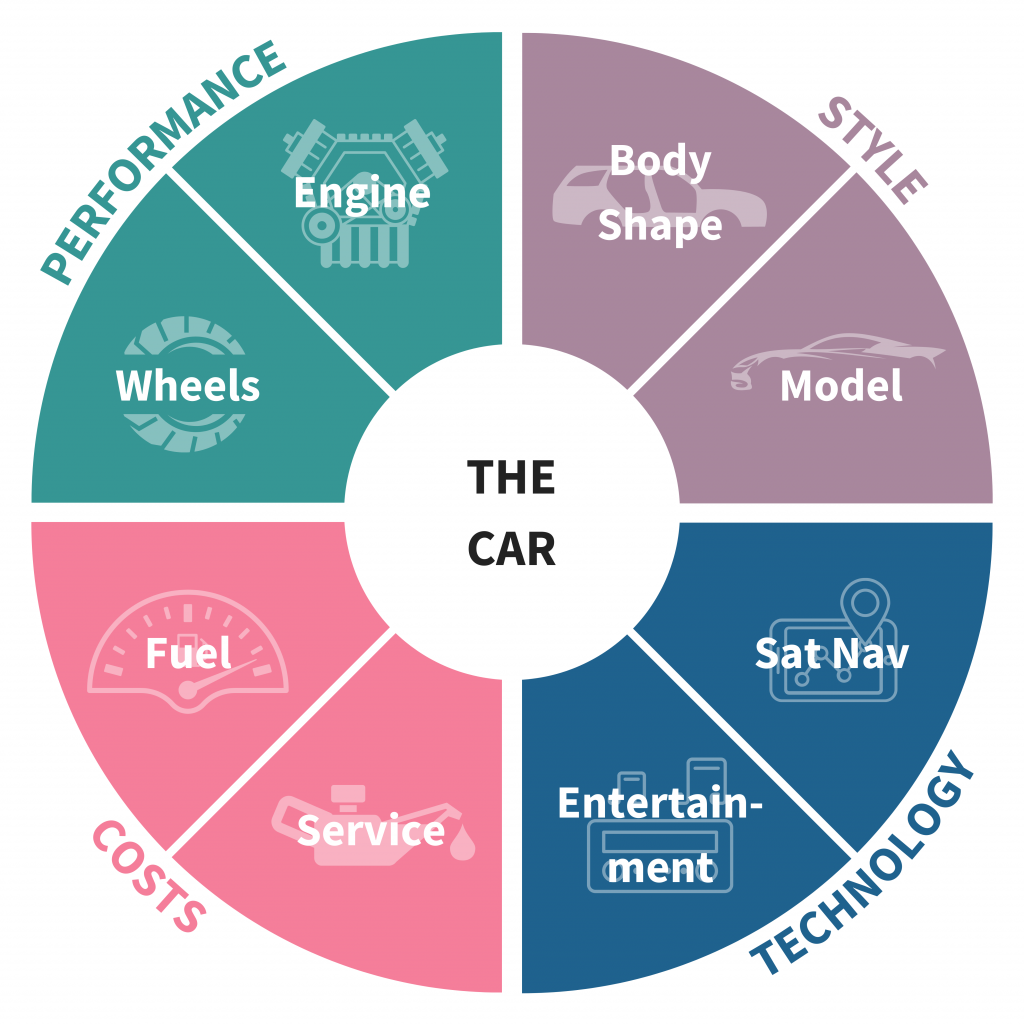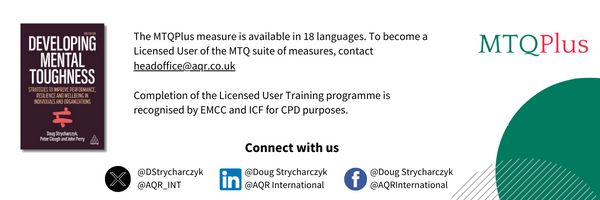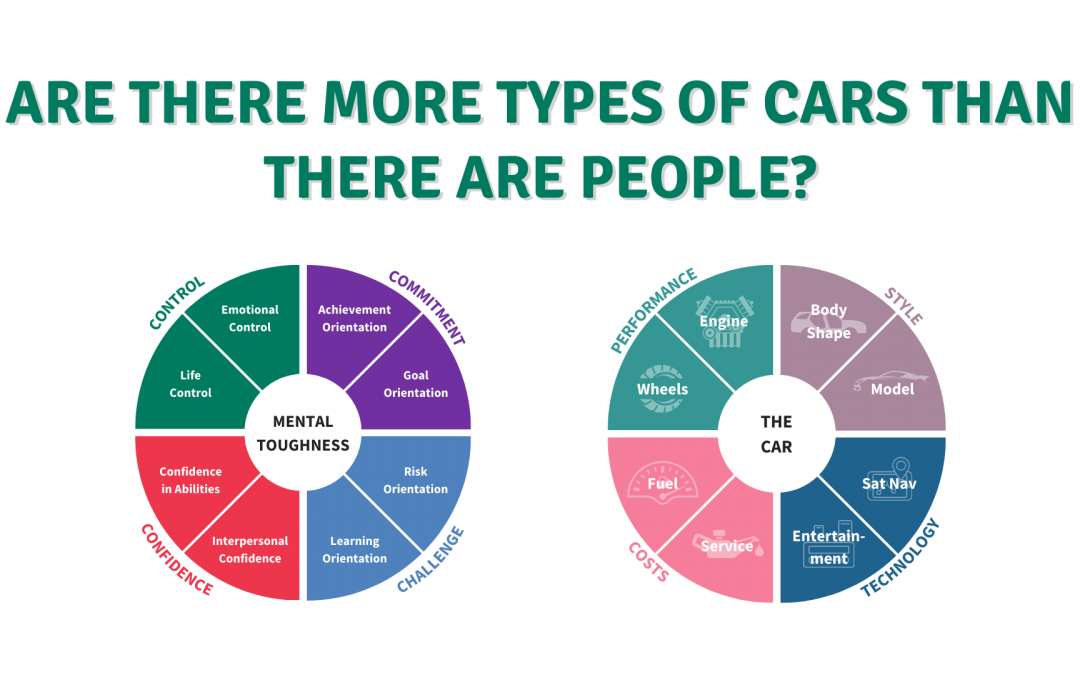Nope! People are more complex and varied and we need to grasp that!
You are not a type or a colour. You are unique. Your ability to thrive depends on your uniqueness. It’s what self-awareness must address.
The Car and Automakers Database, says there are 129 brands, 7144 models and 29,891 engine variations currently available globally to a prospective buyer. That diversity might surprise you. Buy a new car these days and you “build your own version” from a staggering range of options.
People are more varied, complex and much more nuanced than this. So why would anyone label everyone and categorise them into a few types (or colours)?
Why is this important? In 2O23 researchers at Oxford University looked at 143 resilience and wellbeing programmes and found that none delivered expected outcomes (some even did more harm than good). This included things like coaching that you expect to work well.
Why did they fail? All were “one size fits all” programmes. They weren’t customised for the person. It is one thing to know you have a need. Quite another to know what that need is.
If I want to fix anything I must understand what needs fixing, not just that it needs fixing. Training to develop people can work. We know why it doesn’t work. So, how can it work better?
With people, there is complexity to understand and manage. We are all unique in ways that matter. We are not one of sixteen 4 letter types or 4 colours. We can do this better.
The mental toughness concept is an aspect of your personality which describes your mental responses to events. It has contributory 8 factors. There are at least 40,000 combinations of those factors – you are one in 40,000. The image below shows the eight factors and what they mean.

This framework is important for many reasons. It’s the key to being the best version of ourselves that we can be. It’s central to our ability to achieve our goals; it’s the foundation for our growth and development; it’s key to our wellbeing and it’s a basis for our aspirations and hopes.
It addresses customisation. “One size fits all” is not efficient – it’s incredibly wasteful.
So, we can identify a person’s needs to a very fine degree and understand specific needs – the concept enables self-awareness. Importantly, a person can engage in their own growth:
Each of the 8 factors is independent and interplays with other factors to create the nuance that we need to grasp to understand those individual differences in people.
Most have areas of mental toughness and mental sensitivity in their profile. There is no sense here that one is good, and the other is bad. This is understanding people – the “holy grail” of development – understanding individuality to allow all to optimise in the way that works best.
We can understand this idea of difference and outcome by looking again at a car. Typically, there are 4 major areas to consider. Each can have differences in performance, quality, cost and appeal in the same way a mental toughness factor can be more or less mentally tough.

We can select a car that does the essential job of a car but it will be different from others. They are all cars. Just as all people are part of the human race. It is the interplay of factors that matters.
It is this idea of difference and individuality that each one of us needs to grasp and optimise. Time to understand the 8 mental toughness factors to help us understand people better.
Usefully, there is now a psychometric measure, MTQPlus, that helps professionals (at least those who are serious about what they do with people) to assess people better and from that to help everyone to be the best version of themselves that they can be.



